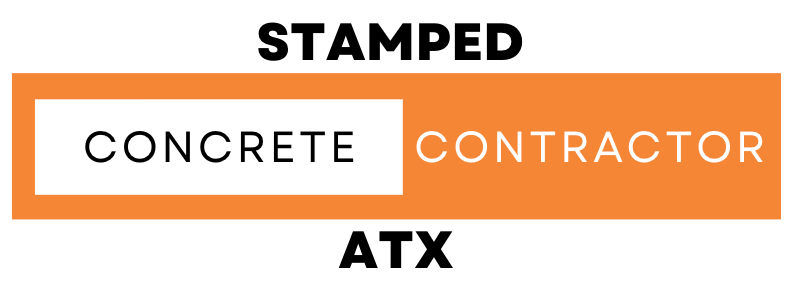Plumbers Close To Me – Georgetown, TX
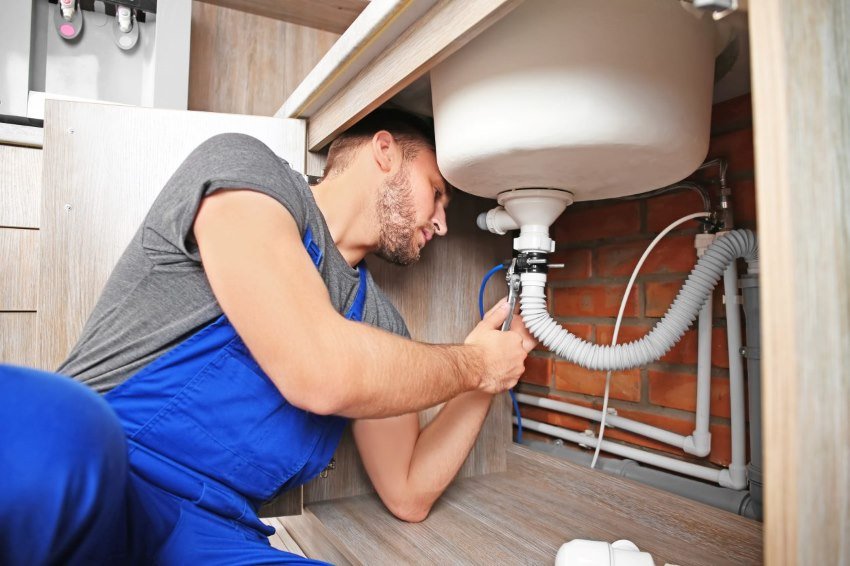
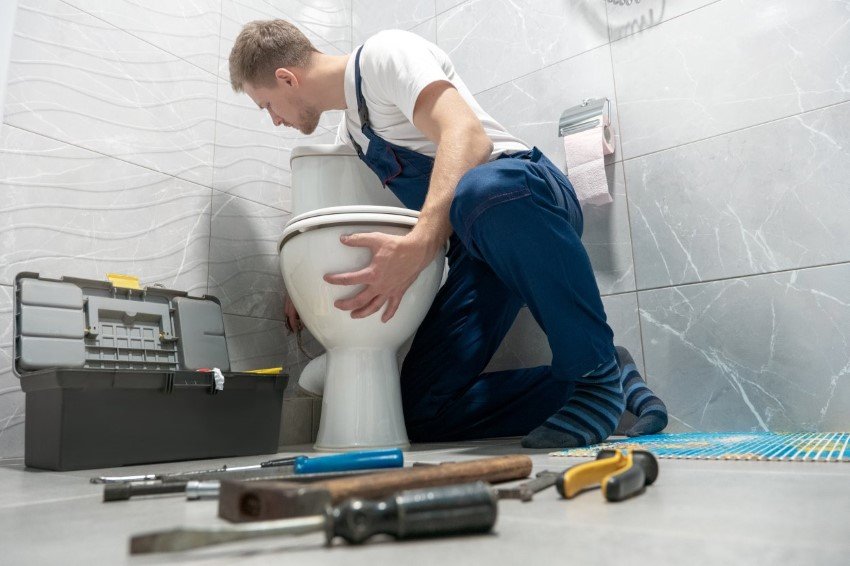
CALL FOR A FREE ESTIMATE
The Benefits of Regular Plumbing Maintenance by Local Experts
Regular plumbing maintenance by local experts offers numerous advantages that can enhance the functionality, efficiency, and longevity of your home’s plumbing system. Here’s a detailed look at the benefits:
1. Prevention of Major Issues
– Early Detection: Regular inspections by local plumbers near me can identify small issues before they become major problems. This includes spotting leaks, corrosion, or blockages that could lead to significant damage.
– Proactive Repairs: Addressing minor issues proactively prevents costly repairs and emergency situations.
2. Cost Savings
– Reduced Repair Costs: By catching problems early, homeowners can avoid the high costs associated with emergency repairs and extensive damage.
– Energy Efficiency: Well-maintained plumbing systems, including water heaters and pipes, operate more efficiently, leading to lower utility bills.
3. Improved Water Quality
– Cleaner Water Supply: Regular maintenance ensures that pipes are clean and free of contaminants, providing safer and cleaner water for your household.
– Proper Filtration: Local plumbers can check and maintain water filtration systems, ensuring they function correctly and provide high-quality water.
4. Extended Lifespan of Plumbing Systems
– Durability: Regular maintenance helps extend the life of your plumbing fixtures, pipes, and appliances by keeping them in optimal condition.
– Reduced Wear and Tear: Proper care and maintenance reduce the wear and tear on plumbing components, delaying the need for replacements.
5. Increased Home Value
– Well-Maintained Systems: A home with a well-maintained plumbing system is more attractive to potential buyers and can increase property value.
– Documentation: Regular maintenance records can provide evidence to prospective buyers that the plumbing system has been well cared for.
6. Enhanced Safety
– Leak Prevention: Regular checks help prevent leaks that can cause water damage and mold growth, which pose health risks.
– Gas Line Safety: For homes with gas lines, regular inspections can prevent dangerous gas leaks and ensure safe operation of gas appliances.
7. Environmental Benefits
– Water Conservation: Fixing leaks and optimizing the plumbing system reduces water waste, contributing to water conservation efforts.
– Energy Savings: Efficient plumbing systems use less energy, reducing your carbon footprint and environmental impact.
8. Expert Advice and Recommendations
– Professional Insight: Local plumbers can provide personalized advice and recommendations based on their knowledge of local conditions and your specific plumbing system.
– Upgrades and Improvements: They can suggest upgrades or improvements that can enhance your system’s performance and efficiency.
9. Peace of Mind
– Reliability: Knowing that your plumbing system is regularly checked and maintained by experts provides peace of mind.
– Emergency Readiness: Regular maintenance ensures that your plumbing system is in good shape, reducing the likelihood of unexpected emergencies.
10. Customized Maintenance Plans
– Tailored Services: Local plumbers can create customized maintenance plans tailored to the specific needs of your home and plumbing system.
– Regular Scheduling: They can schedule regular visits at convenient times, ensuring consistent care without disrupting your routine.
Regular plumbing maintenance by local experts is a wise investment that offers a multitude of benefits. From preventing major issues and saving costs to improving water quality and enhancing home safety, regular check-ups ensure that your plumbing system remains in top condition. By leveraging the expertise and personalized service of local plumbers, homeowners can enjoy a reliable, efficient, and long-lasting plumbing system, ultimately adding value and peace of mind to their property.
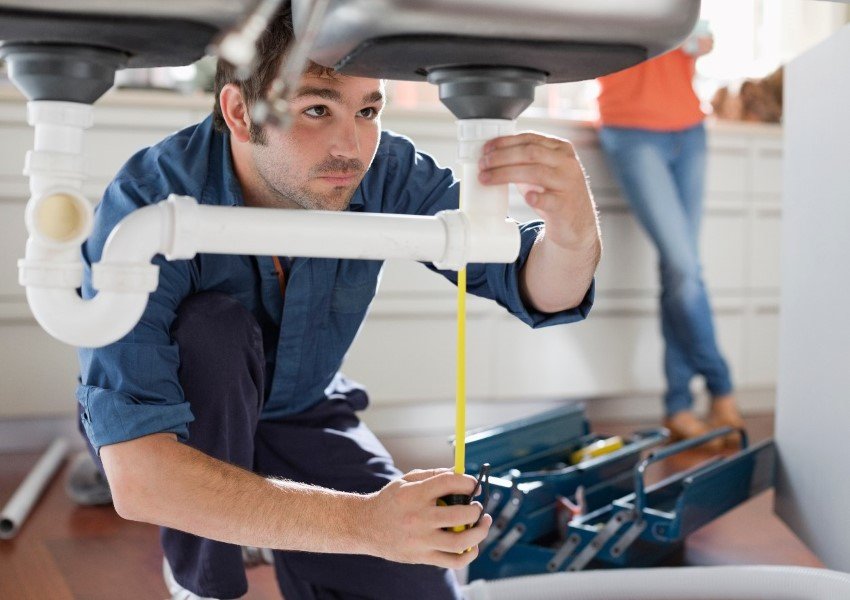
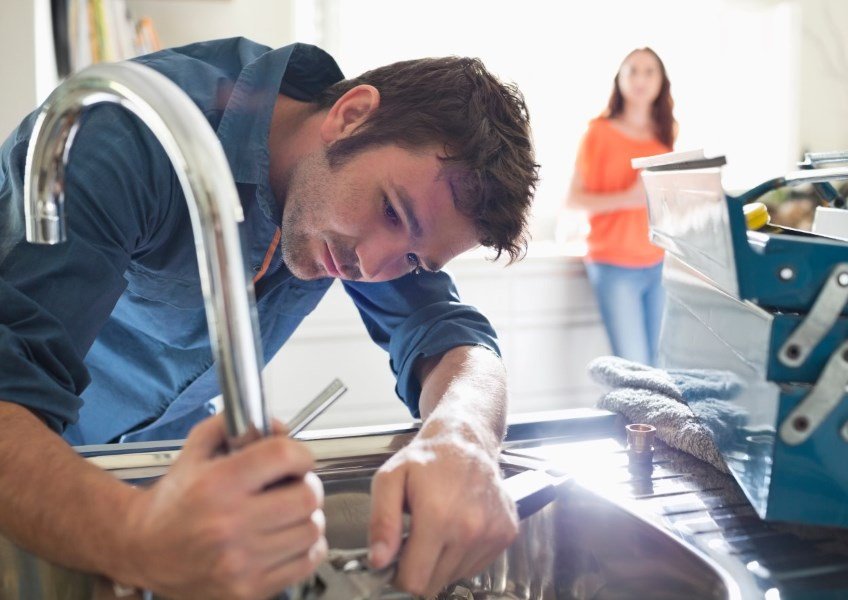
Emergency Plumbing Preparedness: Tips from Local Plumbers
Emergency plumbing situations can be stressful and potentially damaging to your home. However, being prepared can significantly mitigate these issues. Here are some tips from local plumbers on how to be ready for plumbing emergencies:
1. Know How to Shut Off Your Water Supply
– Main Shutoff Valve: Locate your home’s main water shutoff valve and ensure all household members know how to turn it off. This valve is typically found near the water meter or where the main water line enters the house.
– Fixture Valves: Learn how to shut off water to individual fixtures, such as sinks, toilets, and water heaters. These valves are usually located under the sink or behind the toilet.
2. Keep Essential Tools Handy
– Basic Tools: Have a basic plumbing toolkit accessible, including a plunger, adjustable wrench, pipe wrench, pliers, and a drain snake.
– Emergency Supplies: Stock up on emergency supplies like plumber’s tape, a bucket, rubber gloves, and old towels or rags for mopping up water.
3. Regular Maintenance and Inspections
– Routine Checks: Schedule regular inspections and maintenance with your local emergency plumber to identify and fix potential issues before they become emergencies.
– Water Heater Maintenance: Ensure your water heater is regularly inspected and maintained to prevent leaks and other issues.
4. Learn Basic Plumbing Services Near Me Skills
– Minor Repairs: Familiarize yourself with how to perform minor repairs, such as fixing a leaky faucet, unclogging drains, or replacing a washer.
– Online Resources: Utilize online resources and tutorials to educate yourself on basic plumbing tasks.
5. Emergency Contact Information
– Local Plumber: Keep the contact information of a reliable local plumber handy for emergency situations. It’s a good idea to have this information easily accessible, such as on the fridge or stored in your phone.
– Utility Companies: Know the emergency contact numbers for your local utility plumbing companies near me in case you need to report issues like gas leaks or water main breaks.
6. Monitor Water Pressure
– Pressure Regulator: Ensure your home’s water pressure regulator is functioning correctly. High water pressure can lead to pipe bursts and other plumbing issues.
– Pressure Gauge: Use a pressure gauge to check your water pressure regularly. Ideal home water pressure should be between 40-60 psi.
7. Install Leak Detectors and Alarms
– Leak Detectors: Install leak detectors near potential trouble spots like water heaters, under sinks, and behind appliances. These devices can alert you to leaks before they cause significant damage.
– Smart Alarms: Consider smart water alarms that can send alerts to your smartphone if a leak is detected.
8. Preventive Measures for Cold Weather
– Pipe Insulation: Insulate pipes in unheated areas, such as basements, attics, and crawl spaces, to prevent them from freezing and bursting during cold weather.
– Drip Faucets: During extremely cold weather, let faucets drip slightly to keep water moving and prevent freezing.
9. Understand Your Plumbing System
– System Layout: Familiarize yourself with the layout of your plumbing system, including the location of pipes, fixtures, and major appliances.
– Septic System: If you have a septic system, ensure it is regularly inspected and maintained to avoid backups and overflows.
10. Emergency Drain Cleaning
– Avoid Chemical Cleaners: Refrain from using chemical drain cleaners, as they can damage pipes and create more severe problems.
– Use Natural Solutions: For minor clogs, use natural solutions like baking soda and vinegar, followed by hot water, to clear the blockage.
Emergency plumbing preparedness involves a combination of knowledge, tools, and proactive measures. By following these tips from local plumbers and plumbing contractor, you can reduce the risk of major plumbing issues and handle emergencies more effectively when they arise. Regular maintenance, being aware of your plumbing system, and having essential tools and contact information on hand will ensure you are well-prepared for any plumbing emergency.
Comparing Service Quality: Local Plumbers vs. Franchises
Comparing the service quality of local plumbers versus franchises can help homeowners make informed decisions when hiring plumbing professionals. Here’s a detailed examination of the differences in service quality between the two:
1. Personalized Service
– Local Plumbers: Local plumbers often provide more personalized service, as they are more invested in building relationships within the community. They may offer a more tailored approach to addressing your specific plumbing needs.
– Franchises: Franchise plumbers may offer standardized services based on corporate guidelines, which may not always address the unique requirements of individual customers.
2. Expertise and Experience
– Local Plumbers: Many local plumbers have extensive experience in the area and are familiar with local plumbing codes, regulations, and common issues specific to the region. Their expertise can lead to more effective and efficient solutions.
– Franchises: Franchise plumbers may have access to corporate training programs and standardized procedures, but their level of expertise may vary depending on the individual technicians assigned to your service.
3. Response Time and Availability
– Local Plumbers: Local plumbers often prioritize quick response times and availability, especially for emergency services. They are typically more flexible and may offer 24/7 availability to address urgent plumbing issues.
– Franchises: Franchise plumbers may operate on a more rigid schedule, and their response times may vary depending on the workload and the availability of technicians in your area.
4. Accountability and Reputation
– Local Plumbers: Local plumbers rely heavily on their reputation within the community, which incentivizes them to provide high-quality service and maintain customer satisfaction. They are often more accountable for their work and may go the extra mile to ensure customer happiness.
– Franchises: Franchise plumbers may benefit from the reputation of their brand, but individual franchise locations may vary in terms of service quality. While franchises may have corporate oversight, the accountability of individual technicians may not be as high as that of local plumbers.
5. Cost and Pricing Transparency
– Local Plumbers: Local plumbers may offer more competitive pricing, as they often have lower overhead costs compared to franchise operations. They are also more likely to provide transparent pricing estimates and explanations of costs.
– Franchises: Franchise plumbers may have standardized pricing structures, which can sometimes result in higher costs for customers. However, they may also offer guarantees and warranties that provide additional value.
6. Customer Satisfaction and Feedback
– Local Plumbers: Local plumbers rely on positive word-of-mouth referrals and reviews from satisfied customers to grow their business. They may be more responsive to customer feedback and strive to maintain high levels of satisfaction.
– Franchises: Franchise plumbers may have standardized customer feedback processes, but the level of attention to individual customer needs may vary depending on the franchise location and management.
Both local plumbers and franchise operations have their own sets of advantages and considerations when it comes to service quality. Local plumbers often excel in providing personalized service, expertise, and accountability, while franchise operations may offer standardized services and the backing of a recognized brand. Ultimately, the decision between the two depends on factors such as your specific plumbing needs, budget considerations, and the level of importance you place on factors like personalized service and community involvement.
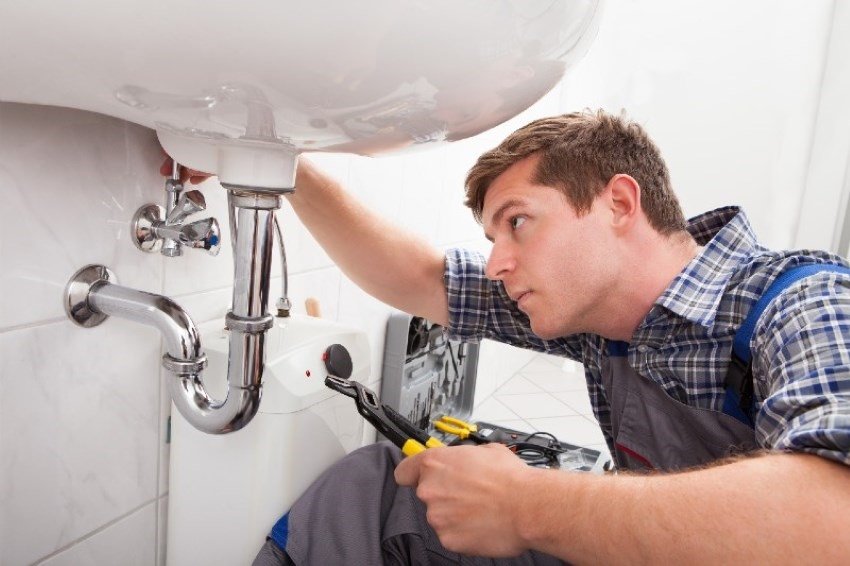
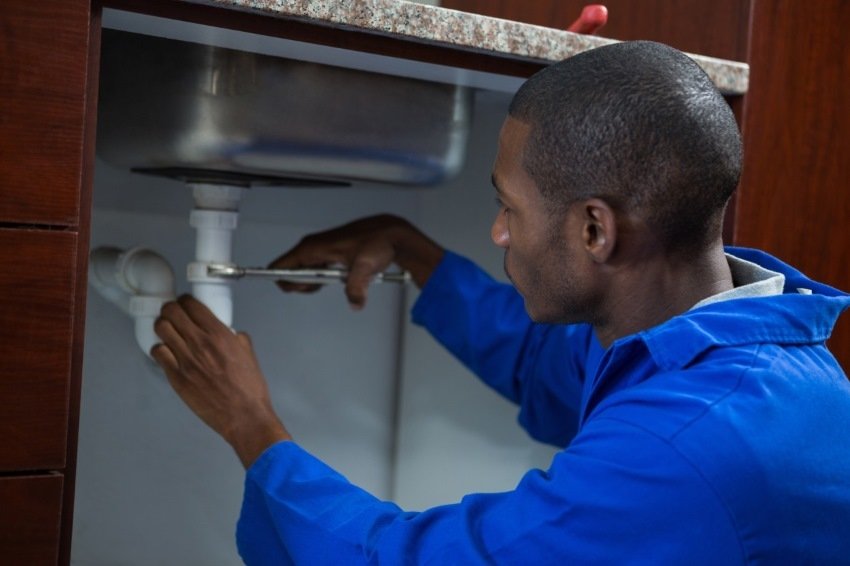
Understanding the Pricing Structure of Local Plumbing Services
Understanding the pricing structure of local plumbing services can help homeowners make informed decisions and avoid unexpected costs. Here’s an overview of the typical pricing components and considerations when hiring local plumbers:
1. Service Call Fee
– Explanation: Some plumbers charge a flat fee for the service call, which covers the cost of dispatching a technician to your location and assessing the problem.
– Variability: Service call fees can vary widely among plumbers and may be influenced by factors such as location, time of day, and the complexity of the issue.
2. Hourly Rates or Flat Fees
– Hourly Rates: Many plumbers charge an hourly rate for labor, which typically includes the time spent diagnosing the problem, performing repairs, and cleanup.
– Flat Fees: Some plumbing companies offer flat-rate pricing for specific services, such as drain cleaning or water heater installation. This can provide more transparency and predictability in pricing.
3. Cost of Materials and Parts
– Markups: Plumbers may include a markup on the cost of materials and parts used in the repair or installation. This markup covers the plumber’s time and effort in sourcing and transporting the materials.
– Transparency: It’s essential to ask for transparency regarding the cost of materials and any markups applied. Some plumbers may provide receipts or invoices for parts to ensure clarity.
4. Emergency and After-Hours Rates
– Surcharge: Many plumbers charge higher rates for emergency or after-hours services, typically to compensate for the inconvenience and increased demand during off-peak times.
– Quotes: When scheduling emergency services, ask about any additional charges or surcharges associated with the timing of the service call.
5. Travel and Mileage Fees
– Explanation: Plumbers may include a travel or mileage fee in their pricing structure to cover the cost of commuting to your location. This fee can vary based on distance and travel time.
– Coverage Area: Be sure to inquire about the plumber’s coverage area and any associated travel fees before scheduling a service call.
6. Diagnostic Fees
– Separate Charge: Some plumbers may charge a separate diagnostic fee for troubleshooting and identifying the cause of the plumbing problem. This fee is in addition to any repair or labor costs.
– Inclusions: Clarify what services are included in the diagnostic fee, such as camera inspections or pressure tests, to ensure you understand the value provided.
7. Guarantees and Warranties
– Workmanship Guarantee: Reputable plumbers often offer guarantees on their workmanship, ensuring that repairs are completed to a high standard. Ask about any guarantees or warranties provided.
– Parts Warranty: Inquire about warranties on parts used in the repair or installation. This can provide added peace of mind and protection against future issues.
8. Discounts and Promotions
– Special Offers: Some plumbing companies offer discounts or promotions for new customers, repeat business, or specific services. Keep an eye out for special offers that can help you save on plumbing services.
– Terms and Conditions: Be sure to review the terms and conditions of any discounts or promotions to understand eligibility requirements and expiration dates.
9. Payment Options
– Accepted Forms: Ask about the forms of payment accepted by the plumbing company, such as cash, check, credit card, or digital payment methods like Venmo or PayPal.
– Payment Terms: Understand the payment terms, including whether payment is due upon completion of the work or if payment plans or financing options are available.
Understanding the pricing structure of local plumbing services involves considering various factors such as service call fees, hourly rates, material costs, and additional charges for emergency or after-hours services. By asking questions, seeking transparency, and clarifying terms and conditions upfront, homeowners can ensure they have a clear understanding of the costs associated with plumbing services and make informed decisions when hiring a local plumber.
Schedule A Free Estimate
Reach Us
Stamped Concrete Contractor ATX
Austin TX
(512) 877-2721
